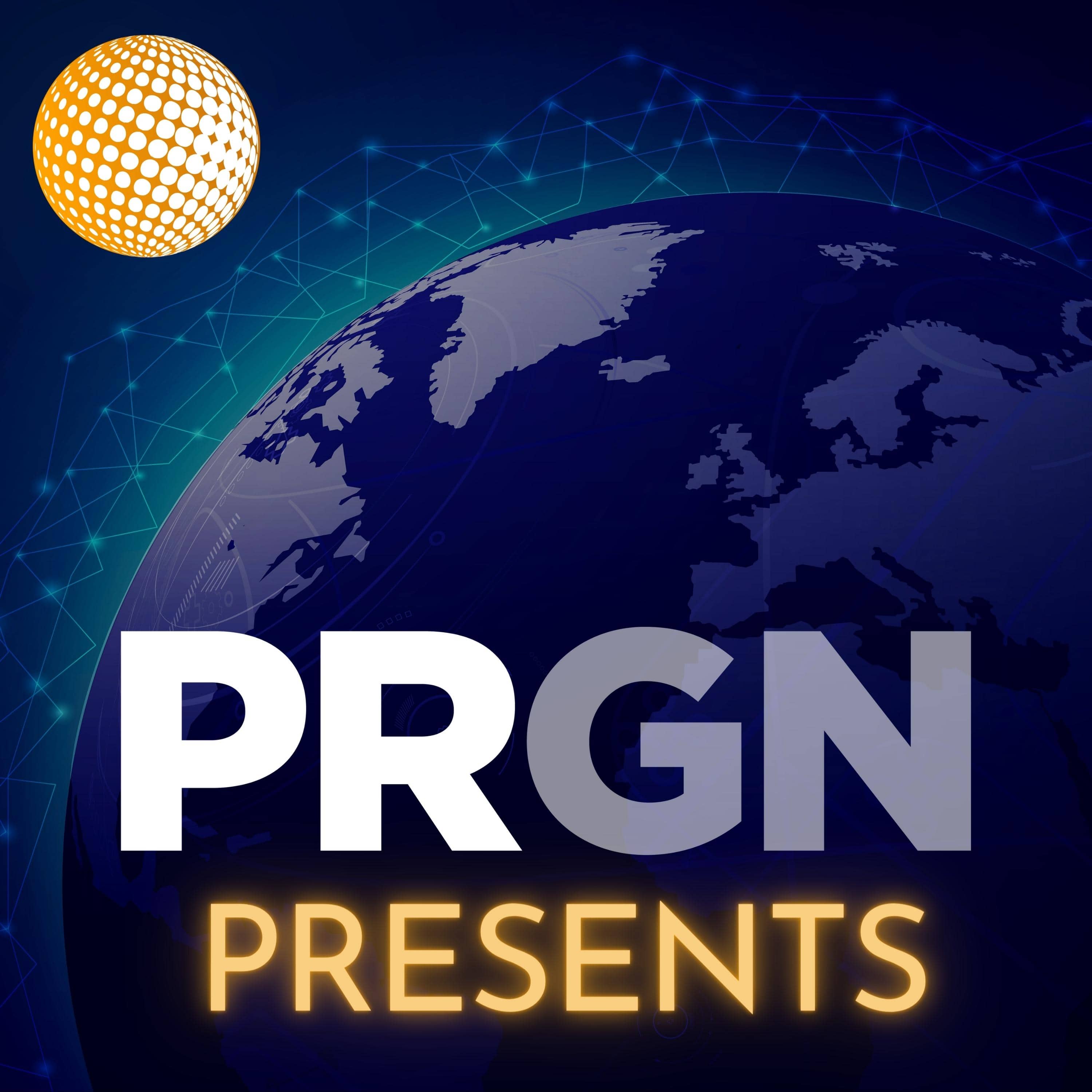S2 E5: PR 4.0 with Andy See
PR 4.0 has arrived. Are you ready for it?
For this episode, we're joined by Andy See from Perspective Strategies in Malaysia. Andy explains his concept of PR 4.0, which is the idea that consumers and stakeholders now take an active role in the process of news and information sharing. Businesses and brands must adjust to this new way of thinking and use it to their advantage to create content that is engaging and encourages people to be active.
Andy also discusses how professional communicators need to evolve to include consumer input and story co-creation. Consumers now have the power to communicate their own stories, as well as share brand stories with their peers. In light of this, professional content creators must embrace this idea of partnering with co-creators to bring forth truthful, ethical, and well-crafted communications projects.
Finally, Andy emphasizes that trust is essential and that PR professionals must play a role in being the custodians of brand information and ensuring that trust is not affected.
About the Guest
After more than a decade of working with multinational and local consultancies including The Boston Consulting Group (BCG) and Edelman, Andy See decided it was time to set up his own practice. He founded Perspective Strategies in 2006 and the boutique agency quickly built a solid reputation for quality strategic counsel, eventually becoming one of the leading PR and Strategic Communications consultancies in Malaysia. Andy speaks regularly at industry events and contributes thought leadership articles on PR, Leadership and Communications. He is a past president of the Public Relations and Communications Association of Malaysia (PRCA Malaysia) and is currently the President-elect of the Public Relations Global Network.
About the Host
Abbie Fink is vice president/general manager of HMA Public Relations in Phoenix, Arizona and a founding member of PRGN. Her marketing communications background includes skills in media relations, digital communications, social media strategies, special event management, crisis communications, community relations, issues management, and marketing promotions for both the private and public sectors, including such industries as healthcare, financial services, professional services, government affairs and tribal affairs, as well as not-for-profit organizations.
PRGN Presents is brought to you by Public Relations Global Network, the world’s local public relations agency. Our co-host and executive producer is Adrian McIntyre with Speed of Story, a B2B communications firm in Phoenix.
Follow the Podcast
If you enjoyed this episode, please follow PRGN Presents in Apple Podcasts, Spotify, Google Podcasts, or any other podcast app. We publish new episodes every other Thursday. To have them delivered automatically and free of charge, just choose your preferred podcast player from this list, open the app, and click the button to “Follow” or “Subscribe” to the show: https://prgnpodcast.com/listen
Need to hire a PR firm?
Leading a business effectively in today's fast-paced world requires expert guidance and a strong communications strategy. No matter where you do business, PRGN has a member agency in your region with the deep industry expertise, international experience, and local market knowledge you need to connect with your target audience and achieve your goals. Find a PR firm near you »
Transcript
From the Public Relations Global Network, this is PRGN Presents. I'm Adrian McIntyre.
Abbie Fink:And I'm Abbie Fink, vice president/general manager of HMA Public Relations in Phoenix, Arizona and a founding member of PRGN. With public relations leaders embedded into the fabric of the communities we serve, clients hire our agencies for the local knowledge, expertise, and connections in markets spanning six continents across the world.
Adrian McIntyre:Our guests on this biweekly podcast series are all members of the Public Relations Global Network. They discuss such topics as the importance of sustainability and Environmental, Social, and Governance programs, crisis communications, content marketing, reputation management, and outside of the box thinking for growing your business.
Abbie Fink:For more information about PRGN and our members, please visit prgn.com. And now, let's meet our guest for this episode.
Andy See:Hi, I'm Andy See. I'm from Perspective Strategies. We're located in Malaysia.
Abbie Fink:Andy, a while back you contributed to a blog post and I was very intrigued by something you wrote and I want to use that to kind of set the conversation today. You said, “the habits and attitudes of consumers and stakeholders towards media consumption have changed from passive to active and now co-active, meaning consumers and shareholders are expected to take a stake in the news and information sharing process.” And you coined this as PR 4.0. I'm so intrigued by the idea that stakeholders, consumers are now expecting to have a role in media information, media sharing. So I'd like you to kind of expound a little bit about that and kind of where you settled on how that was going to impact what we do here in the public relations industry.
Andy See:Thanks Abbie. I think PR 4.0 has arrived, so to speak, because just like, I coined the word because like industry 4.0 and we think that communication also needs to evolve and move to become PR 4.0. I think we've moved very far from information broadcasting to story co-creation. Anyone with a mobile device, anyone with access to internet would now be able to share his or her story with his target audience. In that sense, we feel that we need to move from broadcasting to co-creation in which consumers have a say, consumer has the ability and power to be able to also communicate their story, their perception of brands or even helping us share those brand stories with their peers, their friends, their family. And then that's where co-creation comes into play. And that's where we think communication will be evolving into.
Abbie Fink:How do we as professional content creators, those of us that are tasked with this responsibility for our clients, how are we embracing this or how should we embrace this idea of really partnering, if you will, with these content creators, these co-creators to bring forth this information? I mean, there's a lot of trust that has to happen. And how do we embrace that and really set the stage for truthful and ethical and smart communications projects?
Andy See:If we think back fundamentally, PR and communication has not changed. But the democratization of information and news has changed. It reminded us how important it is to go back to the fundamentals. I think in the past couple of decades, we've been so used to looking at PR from a point of view of broadcasting or purely a media communication channel. And that's where we went wrong. I think it's important to be reminded the fundamental of PR is actually sharing of stories through third party advocates, through people sharing co-stories. I mean, we think back when PR first started, it's about how we pass story from one party to another party. And at a point in time, perhaps media was not as structured and organized. So in that sense, we need to go back to the fundamentals of PR where we need to earn our audience trust and faith to be able to share our stories with their friends and family. What we need to do now is that PR communications and professionals need to go back to the fundamentals of basics of PR in which we need to earn that communication channel. We need to be able to convince our stakeholders to share our stories. And it's not just the media alone now because everyone plays an important role as well. This is where I believe consumers have moved from just being consumer of information to now being able to take part in the action of even sharing that information out there. And I think this is really, really exciting for PR and communication professionals because we will be able to go back to the basics of PR in which we have a role to play to be able to convince, for example, our clients or convince our brands to get our consumers involved in that storytelling journey. And that's really exciting. In fact, I think this is what's going to make PR and communications come alive again, where we have relied so much on paid in the past, now we need to have a combination of paid, earned, shared, all sorts of media platforms to be able to make this work.
Abbie Fink:Well, something you said in that response there was earn the trust. And I think that's one of the things that really resonates for me, wherever the conversation starts, whether it's from the public relations professional, whether it's from the brands that we represent or the consumers that are sharing that content for us, there has to be a level of trust and established that trust that what I am saying is something you can rely on that I am trustworthy, that my reputation is important to me and therefore the content I'm sharing can be seen as accurate, relevant, truthful, you know, along those lines. And I think with social media today, and as you said, there are so many different platforms available to us now and it's not just the traditional media, we really have to look at the shifting in our strategy and how we are using these different platforms in part because of social media, but also in just who is consuming the content and the role that as you said in your blog post, really the role that consumers are expecting to be playing in the sharing of information.
Andy See:Right, I think in a way of course trust is something that we need to earn it between brands, even PR professionals. That's where PR professional ethics need to come into play, where we also need to be part of the ecosystem that would promote trust in terms of the communication. And in this move to PR 4.0, obviously, we also need to battle the challenge of fake news. We also need to battle the challenge of there will be a lot of misinformation out there. And this is where also all of us have to play a part in making that a reality. But it also gives an opportunity for PR professionals to play our role as custodians of brand information in certain ways, to be able to also ensure that our clients or the brands that we work for communicate authentically to ensure that trust is in no way affected.
Adrian McIntyre:Andy, it seems to me that of all the disciplines that a communications practitioner might have available to them, PR in the way we traditionally understand public relations always has something of a tension built into it. That tension is between shaping or influencing the narrative that's out there and reacting, responding to a story in order to try to move it in a positive direction for the client. How does the PR practitioner specifically do the kind of thing that you're talking about? What are the activities? What does it look like in practice to really embrace PR 4.0?
Andy See:Like I mentioned earlier, the fundamentals of public relations have not changed. But obviously along the way, we have sort of forgotten some of the fundamental or basics, the importance of basics. For example, reacting or managing an issue has sort of took over a lot of circumstances. But having said that, the best way to prevent a crisis, for example, is actually to build the reputation building as a first line of defense before you look into internal communication as another line of defense. A crisis is always the furthest away or issues management as a line of defense. Now, PR professionals then need to go back to fundamentals. For example, if we're going to build a narrative that is authentic and our consumers would buy into. Obviously, we also need to learn to listen and that's no different from what we've been doing in the past. So listening, engaging with stakeholders and then coming out with a the narrative that would get our consumers to believe in and become our advocates and share that story out with their peers and friends. That's where the challenge is and that's where PR 4.0 is moving towards, where there's a lot more requirement on our part, right, on the brand's part to listen to consumers, to listen to their customers, to be able to get them to also be part of that communication journey rather than force feed whatever information that you have on them. And of course, in that regard, when we talk about PR 4.0, that's why the purpose narrative is very important as part and parcel of that move. Where we need to get, when we want our consumers or buyers to believe in our brand, obviously we need to think about our why. Why is it relevant to them? Why should they help us communicate? And that's where we need to look at the purpose communication. And I think in the period of during the COVID crisis, for example, it brought a lot of consumer activism, thinking back, you know, how these brands are relevant to us. So I think in that sense, we also need to think from a brand perspective, how do we reach out to consumers and stakeholders, so that they will help us tell our story as well.
Abbie Fink:How do we start that conversation with the brands that we work with? I mean, I can understand how the communications professional would embrace this idea and feel comfortable with the sharing of information, the sharing of content. That's what we do and understanding it. But the CEO of large brand X might have a little bit more of a challenge trusting in this idea that we're going to let loose the reins a little bit and just let anybody talk about us. So how do we bring this new vision or this advanced vision of PR 4.0 into the workplace of our clients or the organizations that we work for? What kind of conversation should we be starting to have with those brands that we represent to get them to understand this is going to be how PR is done in the future? Well, or the future is now, I suppose, but how we're how we need to be thinking about it as we're embracing this new concept.
Andy See:I think the reality is, and I'm sure many CEOs and brand owners realize that we are in a time where the influence of our publics and the amount of leverage they have on consumers, the other consumers, is really big. In a sense that if you have customers who are very unhappy with you, they will be able to communicate that and even create movements against your brand. I think most CEOs realize that in many ways. So in that regard, I think where communications professionals then now need to help these CEOs embrace this journey is that you can no longer just focus on the functional aspects of your product, but you need to look at it from a larger point of view. How are you contributing to the entire purpose journey between the customers and your stakeholders and then the whole movement towards ESG, for example, it's an indication of it's not a choice, but something that companies and brands need to embrace in order to have the license to operate, right? It's gonna be a key thing here. We have to embrace it. You either take up this challenge or you're gonna be hurt by the environment in which society would demand that you either embrace it or there will be repercussions. I think that's where we need to embrace it. But in fact, if we embrace it, it's going to help us also create stronger advocates of brands. And in the long term, even from a spending point of view, rather than spending millions of dollars looking at advertising a particular brand, why not get your consumers to be your best spokespersons and the power of consumers in helping you sharing that stories is truly amazing. Now, for example, I'll give you an example. In the past, you will see governments dictating information and the public would just take it in. Imagine how much money they would need in order to convince the public to believe them without having other people sharing their stories. So I think, for example, even misinformation about vaccines and so forth, the government realized that it's going to fail if it just tries to speak on a one-way communication. What has happened, And the reality has shown that people believe when they listen from their friends, when their families, peers, community leaders. So imagine the power when all these people communicate the same message. That's the only way you're going to get the trust of consumers, modern day consumers, in which I'm not going to believe something is true if I just listen from one party, so be it a government agency or a brand. I'm only going to believe a story that is told to me by my friends, my community leaders, people who I believe. That's going to be effective. You can spend millions of dollars, but if it's a one-way form of communication, you're not going to win the full trust of consumers.
Adrian McIntyre:Thanks for listening to this episode of PRGN Presents, brought to you by the Public Relations Global Network.
Abbie Fink:We publish new episodes every other week, so follow PRGN Presents in your favorite podcast app. Episodes are also available on our website—along with more information about PRGN and our members—at prgn.com.





